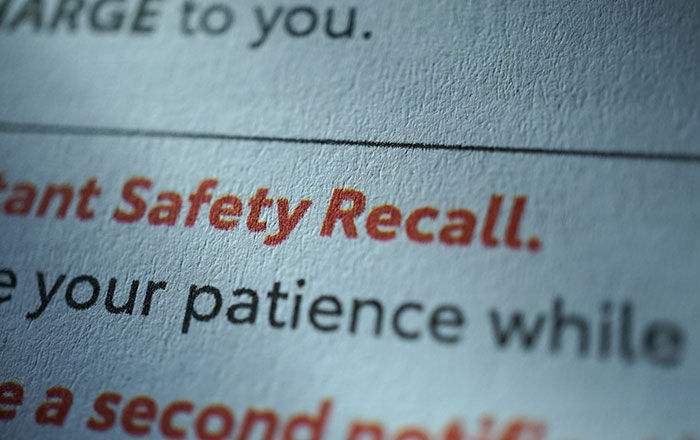After an accident, one of the first questions many people have is, “Can I still recover compensation if I was partly at fault?” The answer, in South Carolina, is often yes, thanks to the state’s comparative negligence law.
This rule plays a major role in determining how much money you can recover in a personal injury claim, whether you were injured in a car accident, slip and fall, truck collision, or any other type of accident caused by someone else’s negligence.
In this post, we’ll explain what comparative negligence means, how it affects your compensation, and why having an experienced South Carolina personal injury lawyer can help you navigate this complex law. We’ll also link this concept to related topics like negligence, wrongful death, and demand letters to show how it fits into the broader legal process.
What Is Comparative Negligence?
Comparative negligence is a legal principle used to determine how fault is shared between parties involved in an accident. Instead of assigning total blame to one side, South Carolina law recognizes that multiple people can contribute to an accident, and adjusts compensation accordingly.
In South Carolina, the Modified Comparative Negligence Rule applies. This means:
- You can still recover damages if you are less than 51% at fault for the accident.
- Your total compensation will be reduced by your percentage of fault.
For example, if you’re awarded $100,000 but found 20% at fault, your recovery will be reduced to $80,000.
If you are found 51% or more responsible, however, you cannot recover any compensation at all.
Why This Law Matters in Personal Injury Claims
South Carolina’s comparative negligence rule affects nearly every personal injury claim, from car crashes to slip and fall accidents. Insurance companies often use this rule to reduce payouts, claiming that victims were partially responsible for their injuries.
For instance, an insurer might argue that a driver who was speeding shares blame for a collision caused by another driver running a stop sign. Or they might claim a customer who fell in a grocery store “should have noticed the spill.”
This is why it’s so important to have an experienced personal injury attorney on your side. Your lawyer will gather evidence, interview witnesses, and counter any attempts to shift blame unfairly.
How Fault Is Determined
Proving fault under South Carolina’s comparative negligence system involves collecting solid evidence. Your injury lawyer will use:
- Accident reports from police or property managers
- Witness statements to verify what happened
- Photographs or video evidence of the scene
- Expert testimony from accident reconstruction specialists or doctors
This documentation helps establish how the accident occurred and minimizes your share of responsibility, increasing your potential compensation.
If you want to understand how evidence plays a role in this process, see our related post The Role of Witnesses and Evidence in a Personal Injury Claim.
Comparative Negligence in Different Case Types
Car and Truck Accidents
South Carolina drivers often share responsibility in collisions. One driver may be speeding while another fails to yield. In such cases, a car accident lawyer will carefully analyze police reports, skid marks, and traffic camera footage to assign fair percentages of fault.
Slip and Fall Accidents
In premises liability cases, property owners might argue that you were careless or distracted. A slip and fall attorney can prove that unsafe conditions, not your behavior, caused the injury.
Medical Malpractice
In healthcare cases, comparative negligence is less common, but defendants sometimes claim that patients ignored medical advice or missed follow-up appointments. A medical malpractice lawyer can address those defenses with expert testimony.
Wrongful Death Claims
In wrongful death cases, comparative negligence can also affect compensation for surviving family members if the deceased is found partially at fault for their own accident. For example, in a fatal car crash, a jury might assign partial responsibility to both drivers. To learn more, see our previous article When to File a Wrongful Death Claim in South Carolina.
The Role of Insurance Companies
Insurance companies often exploit comparative negligence laws to reduce or deny claims. Adjusters are trained to look for statements or evidence that suggest you share some responsibility, even if your actions had little to do with the accident.
That’s why it’s critical not to give recorded statements or sign any documents without speaking to a lawyer first. A South Carolina personal injury attorney will protect your rights, handle communication with insurers, and ensure your words aren’t used against you.
How a Lawyer Uses Comparative Negligence to Your Advantage
While this rule can reduce compensation, a skilled attorney can also use it strategically. For example, your lawyer may demonstrate that another party shares a greater portion of fault, such as multiple drivers in a highway collision or several contractors involved in a workplace accident.
By investigating thoroughly and building a strong case, your injury attorney can minimize your fault percentage and maximize your payout.
This process often starts with a demand letter, which outlines the evidence of the other party’s negligence and your damages. You can learn more about how this works in our post What Is a Demand Letter in a Personal Injury Case?
How Comparative Negligence Impacts Settlement Negotiations
Settlement negotiations often revolve around each side’s perception of fault. Insurance companies may begin with low offers, assuming partial blame will reduce your claim value. Your attorney will counter these offers with evidence that demonstrates the other party’s greater responsibility.
If negotiations fail, your lawyer can file a personal injury lawsuit, allowing a jury to decide fault and damages. For more on how lawsuits differ from claims, see our upcoming article The Difference Between a Personal Injury Claim and a Lawsuit.
Get Help from McWhirter, Bellinger & Associates
At McWhirter, Bellinger & Associates, we’ve spent decades helping South Carolina accident victims recover compensation, even in cases where insurers tried to shift blame unfairly. Our experienced personal injury lawyers know how to interpret comparative negligence laws and present evidence that protects your rights.
Call 803-653-6449 today for a free consultation with one of our skilled attorneys. We have offices conveniently located in Columbia, Lexington, Orangeburg, Camden, Sumter, Aiken, and Newberry.
We’ll handle every aspect of your case, from investigating fault to negotiating a fair settlement, so you can focus on healing.

















